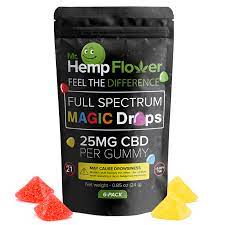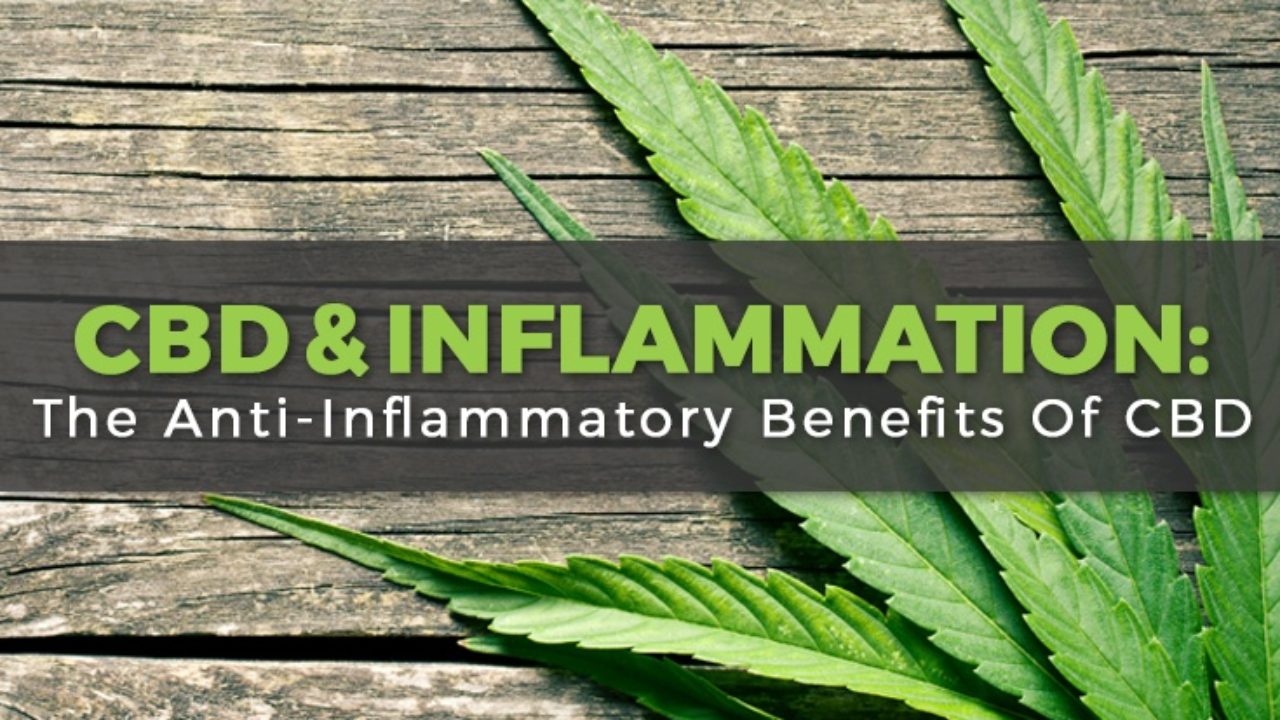Explanation of Broad-Spectrum CBD
In the world of CBD, various types of products are available, each with unique properties and benefits. One such type is Broad-Spectrum CBD, which has gained popularity among users seeking CBD’s potential therapeutic effects without THC. But what exactly is Broad-Spectrum CBD, and what sets it apart from other CBD products?
Broad-spectrum CBD contains a wide range of cannabinoids, terpenes, and other beneficial compounds found in the hemp plant. Unlike CBD Isolate, which contains only pure CBD, and Full-Spectrum CBD, which contains all the compounds found in hemp, including THC, Broad-Spectrum CBD undergoes an additional refinement process to remove the THC while retaining the other beneficial components.
Creating Broad-Spectrum CBD starts with extracting CBD and other compounds from the hemp plant using various methods such as CO2 extraction or ethanol extraction. Once the extract is obtained, it goes through a distillation or chromatography process to remove the THC while preserving the other cannabinoids and terpenes.
By removing THC, Broad-Spectrum CBD offers a THC-free alternative for individuals who may be sensitive to or want to avoid the psychoactive effects associated with THC. This makes it an attractive option for those who want to experience the potential benefits of CBD without the risk of intoxication.
One key advantage of Broad-Spectrum CBD is the entourage effect. This term refers to the synergistic interaction between different cannabinoids, terpenes, and other compounds in the hemp plant. These components are believed to work together to enhance the overall therapeutic potential of CBD, creating a more effective and well-rounded product. While Broad-Spectrum CBD lacks THC, it still contains a variety of cannabinoids and terpenes that may contribute to the entourage effect.
In the following sections, we will explore the unique characteristics and benefits of Broad-Spectrum CBD in more detail. We will delve into its cannabinoid content, the THC-free benefits it offers, and the potential synergistic effects of the entourage effect. So, if you’re curious about unlocking the potential of Broad-Spectrum CBD, keep reading to discover its many benefits and how to incorporate it into your wellness routine.
Stay tuned for the next section, where we will explore the different types of CBD, including Full-Spectrum CBD and CBD Isolate, to understand the CBD landscape comprehensively.
Understanding the Different Types of CBD
When it comes to CBD products, it’s important to understand the different types available on the market. Each type has its unique properties and benefits. This section will explore three main types of CBD: Full-Spectrum CBD, Broad-Spectrum CBD, and CBD Isolate.
Full-spectrum CBD is derived from hemp plants and contains all the naturally occurring compounds found in the plant, including cannabinoids, terpenes, and trace amounts of THC. This type of CBD offers the most comprehensive range of benefits, thanks to the synergistic interaction between the various compounds in what is known as the entourage effect. It is important to note that the THC content in full-spectrum CBD is below the legal limit of 0.3%, so it does not produce any psychoactive effects.
On the other hand, Broad-Spectrum CBD also contains a wide range of cannabinoids and terpenes, but with one key difference: it undergoes an additional extraction process to remove all traces of THC. This makes it an ideal option for individuals who want to experience the benefits of multiple cannabinoids without any THC content. Broad-spectrum CBD still offers the potential benefits of the entourage effect, making it a popular choice among those who want a THC-free option.
Lastly, we have CBD Isolate, the purest form of CBD available. All other compounds are removed during the extraction process, leaving behind only CBD in its isolated form. This means CBD isolate does not contain other cannabinoids, terpenes, or THC. While CBD isolate lacks the potential benefits of the entourage effect, it is favored by individuals who prefer a THC-free product or want to experiment with higher doses of CBD.
In summary, each type of CBD offers its advantages. Full-spectrum CBD provides a comprehensive range of cannabinoids and terpenes, broad-spectrum CBD offers the benefits of multiple compounds without THC, and CBD isolate provides pure CBD without any other compounds. When choosing a CBD product, it’s important to consider your specific needs and preferences to find the type that best suits you.
For more information about CBD and its benefits, check out our article on what is CBD.
What Makes Broad-Spectrum CBD Unique?
When it comes to the world of CBD, there are different types available, each with its unique characteristics and benefits. One such type is Broad-Spectrum CBD, which sets itself apart from others due to its specific cannabinoid content, THC-free benefits, and the concept known as the entourage effect.
Cannabinoid Content
Broad-spectrum CBD contains a wide range of cannabinoids in the cannabis plant, excluding one notable compound – THC. While THC is responsible for the psychoactive effects commonly associated with marijuana, Broad-Spectrum CBD undergoes a rigorous extraction process to ensure that it contains undetectable levels of THC. This means that users can enjoy the potential benefits of CBD without the worry of experiencing any mind-altering effects.
THC-Free Benefits
The fact that Broad-Spectrum CBD is THC-free is a significant advantage for those subject to regular drug testing or who simply prefer to avoid THC altogether. Whether it’s due to professional obligations, personal preferences, or concerns about legalities, the absence of THC in Broad-Spectrum CBD allows individuals to incorporate CBD into their wellness routine with peace of mind.
Entourage Effect
One of the most fascinating aspects of Broad-Spectrum CBD is the entourage effect. This concept suggests that the combination of various cannabinoids, terpenes, and other compounds found in the cannabis plant may enhance the overall therapeutic potential of CBD. While Broad-Spectrum CBD does not contain THC, it retains many other beneficial compounds, such as CBG, CBN, and terpenes, which may work synergistically to produce a more profound effect than CBD alone.
Research into the entourage effect is ongoing, and its potential benefits are still being explored. However, many users of Broad-Spectrum CBD report that it is more effective than CBD isolate due to the presence of these additional compounds. The entourage effect is an exciting area of study in the world of CBD, and its implications may have far-reaching effects on the development of new products and formulations.
In conclusion, Broad-Spectrum CBD offers a unique combination of cannabinoid content, THC-free benefits, and the potential for the entourage effect. Whether you’re seeking the therapeutic benefits of CBD without THC, exploring new avenues of wellness, or simply curious about the latest developments in the CBD industry, Broad-Spectrum CBD is certainly worth considering. Stay tuned to learn more about the benefits and practical uses of this fascinating form of CBD in our upcoming sections.
CBD gummies are a popular and convenient way to enjoy the benefits of Broad-Spectrum CBD. They provide a tasty and discreet option for incorporating CBD into your daily routine.
Benefits of Broad-Spectrum CBD
Regarding the benefits of CBD, broad-spectrum CBD stands out as a versatile and effective option. With its unique combination of cannabinoids and other natural compounds, broad-spectrum CBD offers a wide range of potential advantages for those seeking relief from various health issues. Let’s explore some of the key benefits this form of CBD offers.
Potential Pain Relief
One of the most notable benefits of broad-spectrum CBD is its potential to relieve pain. Studies have shown that CBD can interact with the body’s endocannabinoid system, crucial in regulating pain. By interacting with the receptors in this system, CBD may help reduce pain and inflammation, making it a promising option for individuals dealing with chronic pain conditions such as arthritis or fibromyalgia.
Anxiety and Stress Management
In today’s fast-paced world, anxiety and stress have become common challenges for many individuals. Fortunately, broad-spectrum CBD may offer some relief in this area. CBD has been found to have anxiolytic properties, meaning it can potentially reduce anxiety and promote a sense of calm. By interacting with receptors in the brain associated with mood regulation, CBD may help manage stress and improve overall well-being.
Anti-Inflammatory Properties
Inflammation is at the root of many health issues, including chronic conditions such as arthritis and inflammatory bowel disease. Broad-spectrum CBD has shown promise in reducing inflammation throughout the body. By modulating the immune response and inhibiting inflammatory molecules, CBD may help alleviate symptoms associated with inflammation, offering relief to those suffering from these conditions.
Sleep Aid
Quality sleep is essential for overall health and well-being. Unfortunately, many individuals struggle with insomnia or other sleep disorders. Broad-spectrum CBD may offer a natural solution to improve sleep quality. CBD has been found to interact with receptors in the brain involved in the sleep-wake cycle, promoting relaxation and potentially enhancing sleep duration and quality. This makes it a potential option for those seeking a more restful night’s sleep.
Neuroprotective Effects
Protecting and supporting brain health is crucial for maintaining cognitive function and overall well-being. Broad-spectrum CBD has shown promise as a neuroprotective agent. Research suggests that CBD may help protect brain cells from damage, reduce brain inflammation, and promote new neuron growth. These neuroprotective effects may have potential applications in conditions such as Alzheimer’s disease, Parkinson’s disease, and multiple sclerosis.
Broad-spectrum CBD offers many benefits, from pain relief and anxiety management to anti-inflammatory properties, sleep aids, and neuroprotection. Its unique combination of cannabinoids and other natural compounds sets it apart from other forms of CBD, making it an attractive option for those seeking a holistic approach to their well-being.
The next section will explore how to effectively use broad-spectrum CBD, including choosing the right product, dosage guidelines, and consumption methods. Stay tuned!
How to Use Broad-Spectrum CBD
Broad-spectrum CBD is a versatile and effective product that can be used in various ways. Whether you’re a newcomer or an experienced user, understanding how to use broad-spectrum CBD properly is crucial for maximizing its benefits. This section will explore the key aspects of using broad-spectrum CBD, including choosing the right product, dosage guidelines, and consumption methods.
Choosing the Right Product
Regarding broad-spectrum CBD, numerous products are available to suit different preferences and needs. Each product offers a unique way of incorporating CBD into your routine, from CBD oils and tinctures to capsules and edibles.
CBD oils and tinctures are popular due to their versatility and fast-acting effects. They typically come in dropper bottles, allowing for precise dosage control. Simply place a few drops under your tongue and hold them there for 30 seconds before swallowing. This method allows for sublingual absorption, ensuring quick absorption into the bloodstream.
CBD capsules are an excellent option for those who prefer a pre-measured dose of CBD. These capsules contain a specific amount of CBD, making it easy to track your intake. Swallow the capsule with water, and the CBD will be absorbed through the digestive system.
CBD edibles are a tasty and discreet way to consume CBD. These include gummies, chocolates, and other treats infused with broad-spectrum CBD. Edibles provide a convenient option for on-the-go use and can be easily incorporated into your daily routine.
When choosing a broad-spectrum CBD product, it’s essential to consider factors such as potency, ingredients, and manufacturing process. Look for third-party products tested for quality and purity, ensuring you get a reliable and safe product. For more information on what to look for when purchasing CBD products, check out our article on CBD Facts.
Dosage Guidelines
Determining the right dosage of broad-spectrum CBD is a personal process that depends on several factors, including body weight, individual metabolism, and desired effects. It’s always advisable to start with a low dosage and gradually increase until you achieve the desired results.
A general rule of thumb is to start with 1-6 milligrams of CBD per 10 pounds of body weight. For example, a person weighing 150 pounds might start with a dosage range of 15-90 milligrams of CBD daily. It’s important to note that these are general guidelines, and individual responses may vary.
To help you find your optimal dosage, pay attention to your body’s response and adjust accordingly. If you’re new to CBD, starting with a lower dosage and gradually increasing it over time is recommended. Keeping a journal to track your CBD usage and its effects can be beneficial in finding the right dosage for you.
For more detailed information on CBD dosage, including specific guidelines for different conditions, refer to our comprehensive guide on CBD Dosage.
Methods of Consumption
Broad-spectrum CBD can be consumed in various ways, allowing you to choose the method that best suits your preferences and lifestyle.
In addition to the sublingual method used with oils and tinctures, you can vape broad-spectrum CBD. Vaping involves inhaling CBD-infused vapor using a vaporizer or vape pen. This method offers rapid absorption, making it ideal for those seeking immediate effects. However, it’s worth noting that vaping may not be suitable for everyone and should be approached with caution.
Another popular method of consumption is topical application. CBD-infused creams, lotions, and balms can be applied directly to the skin, targeting specific areas for localized relief. This method is particularly beneficial for those experiencing joint or muscle discomfort.
Ultimately, the choice of consumption method depends on personal preference and the desired effects. It’s important to experiment and find the best method for you.
The next section will delve into the safety considerations when using broad-spectrum CBD, including quality control, potential side effects, and drug interactions. Stay tuned!
[CBD Dosage]: (https://www.mrmeangreen.com/cbd-dosage)
Safety Considerations
When it comes to using broad-spectrum CBD, several safety considerations should be considered. Ensuring the quality and purity of the product is of utmost importance, as well as being aware of potential side effects and drug interactions.
Quality and Third-Party Testing
One of the key safety considerations when using broad-spectrum CBD is the quality of the product. Choosing a reputable brand that follows rigorous manufacturing processes and uses high-quality ingredients is crucial. Third-party testing is essential to ensuring CBD products’ quality and purity. This involves independent laboratories testing the product to verify its cannabinoid content and check for any contaminants, such as heavy metals or pesticides. Look for brands that provide certificates of analysis (COAs) from third-party laboratories, which confirm the product’s quality and safety.
Potential Side Effects
While broad-spectrum CBD is generally well-tolerated, it is important to be aware of potential side effects. These side effects are usually mild and temporary, but knowing what to expect is still important. Some individuals may experience drowsiness, dry mouth, or changes in appetite when using CBD. It is also worth noting that CBD can interact with certain medications, so it is advisable to consult with a healthcare professional if you are taking any prescription drugs.
Drug Interactions
CBD can interact with certain medications, so being aware of potential drug interactions is crucial. CBD inhibits enzymes in the liver that are responsible for metabolizing many prescription medications. This can result in higher levels of these medications in the bloodstream, which may lead to adverse effects. If you are taking any medications, it is important to consult with your healthcare provider before incorporating broad-spectrum CBD into your routine. They can advise you on potential interactions and help you determine the appropriate dosage and timing for your situation.
In conclusion, safety considerations are an essential aspect of using broad-spectrum CBD. Ensuring the quality and purity of the product, being aware of potential side effects, and understanding drug interactions are key factors to consider. By taking these precautions, you can enjoy the potential benefits of broad-spectrum CBD while minimizing any associated risks. Remember to consult with a healthcare professional if you have any concerns or questions regarding using CBD alongside any existing medications.
Frequently Asked Questions
As the popularity of Broad-Spectrum CBD continues to grow, it’s natural for people to have questions about its legality, potential effects on drug tests, and how long it takes to feel its benefits. This section will address these frequently asked questions to provide you with the information you need.
Is Broad-Spectrum CBD legal?
Broad-Spectrum CBD is legal in many countries, including the United States. However, it’s important to note that CBD’s legal status can vary from jurisdiction to jurisdiction. In the United States, for example, CBD derived from hemp is legal under federal law as long as it contains less than 0.3% THC (tetrahydrocannabinol). THC is the psychoactive compound in cannabis that produces the “high” sensation. To ensure compliance with the law, it’s crucial to source your Broad-Spectrum CBD products from reputable manufacturers who provide third-party lab testing and transparently disclose the THC content in their products.
Can I fail a drug test with Broad-Spectrum CBD?
While Broad-Spectrum CBD products are typically THC-free or contain trace amounts of THC, there is still a possibility of failing a drug test. Most standard drug tests are designed to detect THC metabolites in the body, and even small traces of THC can be detected in some cases. If you are concerned about drug tests, it’s advisable to opt for CBD Isolate products, which contain no THC at all. However, it’s important to note that drug testing policies and methods can vary, so it’s always a good idea to consult with your employer or the drug test organization to understand their specific guidelines.
How long does it take to feel the effects of Broad-Spectrum CBD?
The time it takes to feel the effects of Broad-Spectrum CBD can vary depending on several factors, including the individual’s metabolism, the dosage, and the method of consumption. When taken orally, such as in CBD capsules or CBD edibles, the effects may take longer to be felt as the CBD needs to be digested and metabolized by the body. This can take anywhere from 30 minutes to a few hours. On the other hand, methods like CBD tinctures or CBD vaping offer faster absorption, with effects felt within minutes.
It’s important to remember that CBD affects everyone differently, and finding the right dosage and method of consumption may require some experimentation. A common approach is starting with a low dosage and gradually increasing it until the desired effects are achieved. Additionally, it’s recommended to consult with a healthcare professional knowledgeable about CBD to ensure its safe and effective use.
In conclusion, understanding the legal status of Broad-Spectrum CBD, its potential impact on drug tests, and the timeframe for experiencing its effects is crucial for making informed decisions about its use. By being aware of these frequently asked questions, you can confidently navigate the world of Broad-Spectrum CBD and explore its many potential benefits.
Conclusion
In conclusion, broad-spectrum CBD offers many benefits, making it a popular choice among users. Its unique composition, which includes a variety of cannabinoids and terpenes, allows for the entourage effect to take place, enhancing the overall therapeutic potential of the compound. The absence of THC in broad-spectrum CBD products ensures that users can enjoy the benefits without experiencing any psychoactive effects or worrying about failing a drug test.
One of the key advantages of broad-spectrum CBD is its potential to relieve pain, anxiety, and inflammation. Research suggests that it may help manage chronic pain conditions, reduce anxiety and stress levels, and alleviate inflammation. Additionally, broad-spectrum CBD has shown promise in promoting better sleep and protecting the brain from neurodegenerative diseases.
When using broad-spectrum CBD, choosing high-quality products from reputable brands that undergo third-party testing is important to ensure purity and potency. Dosage guidelines may vary depending on individual needs and should be determined based on factors such as body weight and sensitivity. Various methods of consumption are available, including tinctures, capsules, and edibles, allowing users to find the most convenient and effective option for their needs.
While broad-spectrum CBD is generally considered safe, it is important to be aware of potential side effects and any potential drug interactions. Consulting with a healthcare professional is recommended, especially if you take medications or have any underlying health conditions.
Broad-spectrum CBD is a versatile and beneficial compound that can support overall health and well-being. Its non-intoxicating nature, combined with its potential therapeutic effects, makes it a valuable addition to the wellness routines of many individuals. Whether you’re seeking relief from pain, anxiety, or inflammation, broad-spectrum CBD may provide the natural solution you’ve been looking for.
Please explore our article library for more information on CBD, including its benefits, dosage guidelines, and potential side effects.
Disclaimer: This article is for informational purposes only and does not constitute medical advice. Always consult a healthcare professional before starting any new dietary supplement or changing your healthcare routine.





